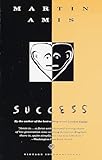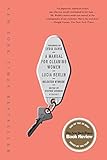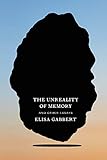I’ll admit, I’d considered the scenario in the past. You wake up one day to find that the world has gone on pause, a full timeout’s been called, all work deadlines, professional obligations and social engagements on hiatus indefinitely. Just think of all the reading you could get done. That book that’s been languishing on the nightstand for nearly a year? Finished it. The nineteenth-century classic I’d been affecting knowledge of all these years? Gobbled it up. The cinder block-thick tome of maximalist postmodernism? Yeah, I read that too.
Thinking back on this terrible year, I’m ashamed how close my experience hewed to that fanciful setup, at least for a time. Because the truth is I responded, initially, to the shock and horror of a full-scale pandemic by retreating into books. They’ve been reliable companions before, in times of crisis and of clarity. And so I heeded the dire warnings from all corners to “stay the f—- home!” The evidence is now in: not even a pandemic can make a cook or a gardener out of me. I’m a reader, or I was. This is the story of how I read fifty books in quarantine, and then stopped reading altogether.
As visitors to this site may know, I co-host the Fan’s Notes podcast with The Millions staff writer Adam O’Fallon Price. We read a book and discuss it, in our blithe and half-assed way. But I work mainly as a documentary filmmaker and videographer. And in the span of a week, all the gigs I had booked for the spring and summer, including trips to the Gulf Coast to film with shrimpers and to Memphis to hang out with the photographer William Eggleston, were canceled. It wasn’t clear if the production industry would survive (it still isn’t clear, truthfully.) Being close enough to another person to pin a lavalier mic on their shirt was suddenly unimaginable.
To be clear, ours was a privileged lockdown.
My wife and I have no children, and so were spared the anxieties of Zoom
schooling and interrupted childcare. Our little patch of the Piedmont is seamed
with hiking routes and walkable trails, and by March the days were warm enough
to spend largely out of doors. We pivoted to recording the podcast en plain air,
in defiance of audio-engineering best practices. The birdsong and traffic noise
were features now, not bugs.
Friends I talked to at the time reported having trouble reading, their concentration shot. I commiserated, although this wasn’t the case for me. In fact, I had filled the hatchback with books from my office and hunkered down at home to aid in flattening the curve. Still, I wanted mood-altering books, books that would make me laugh. I picked up James Hamilton-Paterson’s Cooking with Fernet Branca, which would stand alone as the funniest book I’d ever read that embeds absurd recipes right into the body of the text, had I not chased it with John Lanchester’s 1997 debut The Debt to Pleasure. Lanchester’s book takes an even dimmer view of the self-aggrandizing snobberies of the aesthete, the gourmand, the collector of aesthetic experience. Next I turned to P.G. Wodehouse, whose farces were a tonic. I read The Code of the Woosters and Joy in the Morning in glazed delight.
I can’t say the same for Evelyn Waugh, whose comic novels I revisited next. I was twenty when I last read Waugh, and found the waft of his acrid cynicism to be bracing, almost brave. This time around, it came off hollower, more brittle somehow, the jokes glib when not outright racist, the cruelties unleavened by any appeal to humanism. There’s still good stuff here—the opening of Vile Bodies, rendered almost entirely in dialogue, and the ending of A Handful of Dust are particular standouts—but Waugh proved tough going in a pandemic.
I moved on to other satirists. I read Martin Amis’s Success, a late seventies examination of sexual slummings among the British upper and underclasses, and followed it up with Mary McCarthy’s The Oasis, a short, serrated burlesque that sees her thinly-disguised former Partisan Review colleagues assembling an in-crowd utopian community in Vermont. In a year of exclusionary socializing, with friend-groups cleaved into “pods” based on how vehemently you heeded or defied CDC guidelines, McCarthy’s satire came off every bit as sharp as it must have when she wrote it.
Sometime in April, I started seeking out old favorites, like literary comfort food for uncertain times. Many were books we’ve covered on the podcast: Nicholson Baker’s The Mezzanine, Rachel Cusk’s Transit, Philip Roth’s The Ghost Writer, Ben Lerner’s Leaving the Atocha Station. I found in each of them a measure of reassurance, a still point amid chaos. In the same vein, I read Evening in Paradise, the subsequent volume of Lucia Berlin short stories. I can see why these stories didn’t make it into the essential 2015 reissue collection, A Manual for Cleaning Women, even though there’s plenty to cherish in these stories as well. Cutting-room floor Lucia Berlin is still a step up from most of what’s out there.
By May I was chain-reading, grabbing a book off the table with one hand while I turned the last page on another. I dulled the living room hardwoods with step-count laps. I read crime novels, like John D. MacDonald’s Dress Her in Indigo. I read Ian McEwan’s early, nasty stuff: In Between the Sheets, The Comfort of Strangers, The Cement Garden, and the terrific little spy novel The Innocent. I read Americana—maximalist DeLillo!—and reread Mao II, which still has teeth. I arrived intolerably late to the Barbara Pym party, and if all the guests are as charming as Excellent Women, I’ll never leave. I read Norman Rush’s Mating, thrilling at the narrator’s penchant for baroque Latinate neologisms, and Sylvia Ocampos’s shimmering, elusive The Promise, and L.P. Hartley’s The Go-Between, whose opening lines you know even if you’ve never read it: “The past is a foreign country: they do things differently there.”
I reread Camera Lucida, by Roland Barthes, a book that’s meant a lot to me as a documentarian. It seemed fitting to follow that up with W.G. Sebald’s masterpiece, Austerlitz, which is, among other things, a working-through of Barthes’ idea that photography is suffused with the melancholy of death. We’re meant to associate the photo of the young boy on the cover with the title character (the photo also appears within the space of the book, alongside other images that both underscore and undercut its claim to documentary realism.) With its oblique narrative style, its emphasis on the recursive magnetism of memory, its playful, occasionally outrageous pictorial enjambment, and its braiding of the historical with the fictional, Austerlitz informs much of what came after it. (The autofiction craze of the last decade is unthinkable without Sebald.) More to the point, I found the experience of rereading it to be deeply moving, and I finished it in a squall of gloppy tears. I then read The Emigrants, The Rings of Saturn, and Vertigo, in quick succession.
Spurred on by a friend who was working through the recent reissues of Vasily Grossman, I cracked open Stalingrad and got most of the way through it. It’s a remarkable book, and I have every intention of finishing it. It’s just that, toward the end of July, my quarantine reading streak came to an end, nearly as abruptly as it began. Partly this was work-related—several projects creaked back to life at once. But it was spiritual too. The social isolation was wearying, not knowing when I’d see my family or hug a friend again. Books ceased to be a comfort, which only made me more irritated with myself for relying on them as a coping strategy. Like Burgess Meredith’s character in the classic Twilight Zone episode Time Enough at Last, I’d gotten what I’d wanted—a room full of books and time enough to read them—but at a cost. Every day, the news cycle released something new into the social bloodstream that spiked anxiety, be it police brutality or super-spreader events or a president that seemed disinclined to leave office regardless of election outcome. To tweak Hartley’s opening line: America’s a foreign country, and reports of how they do things there are still incoming.
It’d be inaccurate to say I haven’t read any books since August. The podcast has put me in touch with some exceptional ones, like Elisa Gabbert’s The Unreality of Memory and Sandra Newman’s The Heavens. (Whether I’ll look back fondly on those spring weeks spent rereading Jonathan Franzen’s colossally clumsy Freedom remains to be seen.) Recently, we discussed Hav, by the great Welsh writer Jan Morris, who died last week. This effectively meant that Morris’s writing bookended my reading year. In January, I read Destinations, Trieste and The Meaning of Nowhere, and Conundrum, books in which the reader accompanies Morris across the globe, guided always by her intelligence, her compassion, and her unfailingly lovely and pellucid prose. It’s strange to think back on those books from a present that’s fraught with travel restrictions and airborne disease. I’m not sure when I’ll next travel for work or pleasure.
Which is too bad, because traveling, like reading, is one of the ways that we share experiences with others and learn from them. Morris’ books did that. She was a tireless advocate for liberation, for neighborliness at home and abroad, and for kindness, a trait that’s sadly on the wane in this global moment. I suppose that’s ultimately what I’ll take away from this year of reading and then not-reading. Reading, like traveling, is restorative, but only insofar as it refreshes our capacity to empathize and interact with others. It’s a solo act that serves to reinforce the power and possibility of the collective. To put it another way, that “Nature is Healing” meme that was so popular at the start of the pandemic got it all wrong: healing is a social act. Here’s hoping we see more of it the coming year.
More from A Year in Reading 2020
Don’t miss: A Year in Reading 2019, 2018, 2017, 2016, 2015, 2014, 2013, 2012, 2011, 2010, 2009, 2008, 2007, 2006, 2005



























